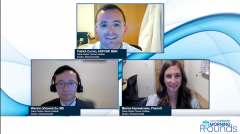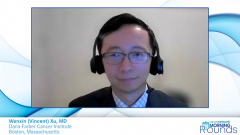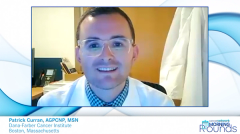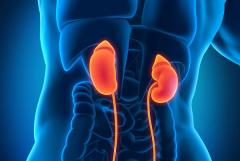
Key Takeaways on the Management of Clear-Cell RCC
In closing, experts share clinical pearls on open communication with patients, dose reduction strategies, and the relevance of treatment holidays for improving quality of life in patients with renal cell carcinoma.
Episodes in this series

Summary:
In closing the discussion on advanced renal cell carcinoma (RCC), the experts offer valuable clinical practice pearls. Emphasizing the importance of clear communication, the need to assess patients’ understanding of their illness, treatment goals, and values is underscored. The discussion acknowledges that best supportive care is a viable option at various points in the cancer journey, and it’s crucial to ensure patients comprehend their situation for informed decision-making.
The predominant use of VEGF receptor tyrosine kinase inhibitors (TKIs) in RCC is highlighted, with an emphasis on managing their associated toxicities. Dose modification is deemed a significant strategy often underutilized, emphasizing that many patients fare well on reduced VEGF-TKI doses, enhancing their quality of life and prolonging therapy duration. The experts stress that dose reduction should be a primary strategy for optimizing the benefits of these agents, emphasizing the finite nature of available therapies. A notable mention is made of the STAR trial in RCC, which demonstrated that patients on TKIs with treatment holidays had comparable overall survival to those on continuous dosing. This finding supports the idea that breaks from TKIs, especially for patients experiencing adverse effects, are not detrimental to overall survival, and such breaks can significantly improve patients’ quality of life, allowing them to attend important life events.
The discussion concludes by recognizing the dual role of these drugs: to control cancer and help patients feel well, enabling them to participate in significant life events. The experts express gratitude for the engagement in the lively discussion on RCC, emphasizing its informative and beneficial nature for clinical practice.
Summary is AI-generated and reviewed by Cancer Network editorial staff.
Newsletter
Stay up to date on recent advances in the multidisciplinary approach to cancer.










































